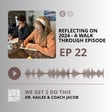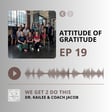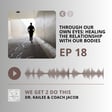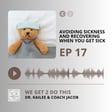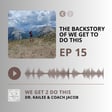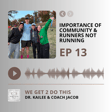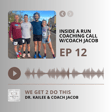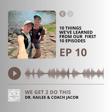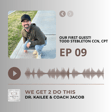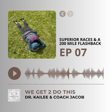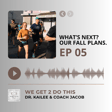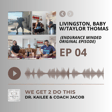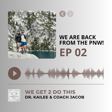
11 | Training for Your Best Marathon with Aaron Boike
Welcome Aaron Boike of Performance Running Gym to the show! Aaron is a great friend and mentor of Jacob. Together they are leading a training group out of Minnesota, this fall, that is gearing up to run the California International Marathon. This podcast was originally designed for the people within that training group, but is very beneficial for anyone looking to run their first marathon, finish their next marathon with a PR, currently training for a marathon, etc.
We talk about ALL THINGS relating to the training side of the marathon starting with the mental side, including 8 things Jacob wish someone would've told him before running his first marathon. From there, they dive into the tactical side of training items such as phases of training/their progressions, types of workouts to include in a training cycle, the 80/20 rule, strength training for runners, fueling tips, dealing with injury setbacks, and more!
This podcast was originally a live seminar that Aaron and Jacob did. The slides that go along with it can be found here.
Follow us on Instagram @weget2dothispod
Email us questions/comments at weget2dothis@gmail.com
Check out the video portion of our show at https://www.youtube.com/@weget2dothis
For business information hit up the links below:
Dr. Kailee Acupuncture Website
LASTLY -> If you enjoyed the show, please like, comment, subscribe and consider giving us a 5-star review wherever you listen or watch :-)
We Get 2 Do This!
